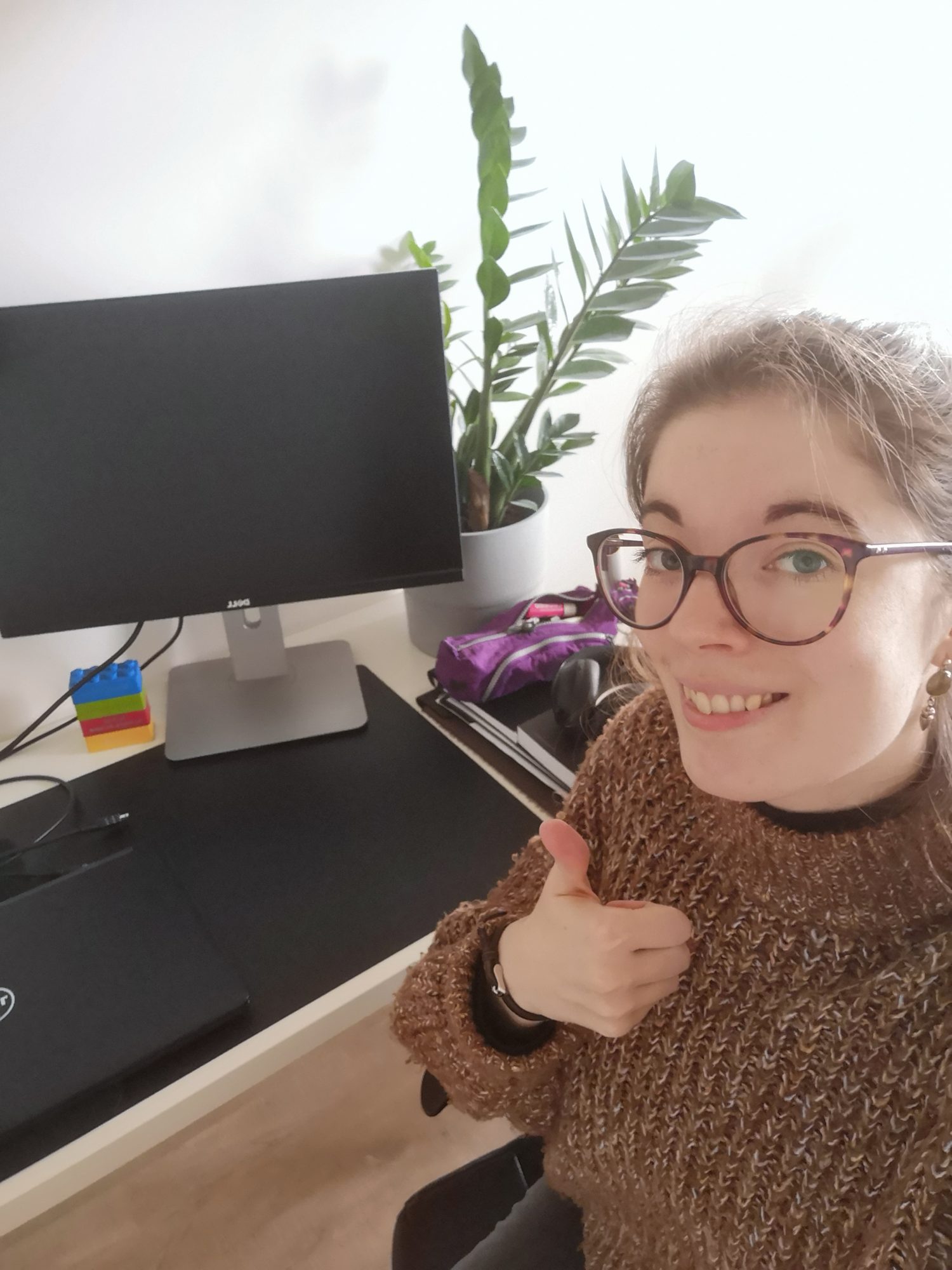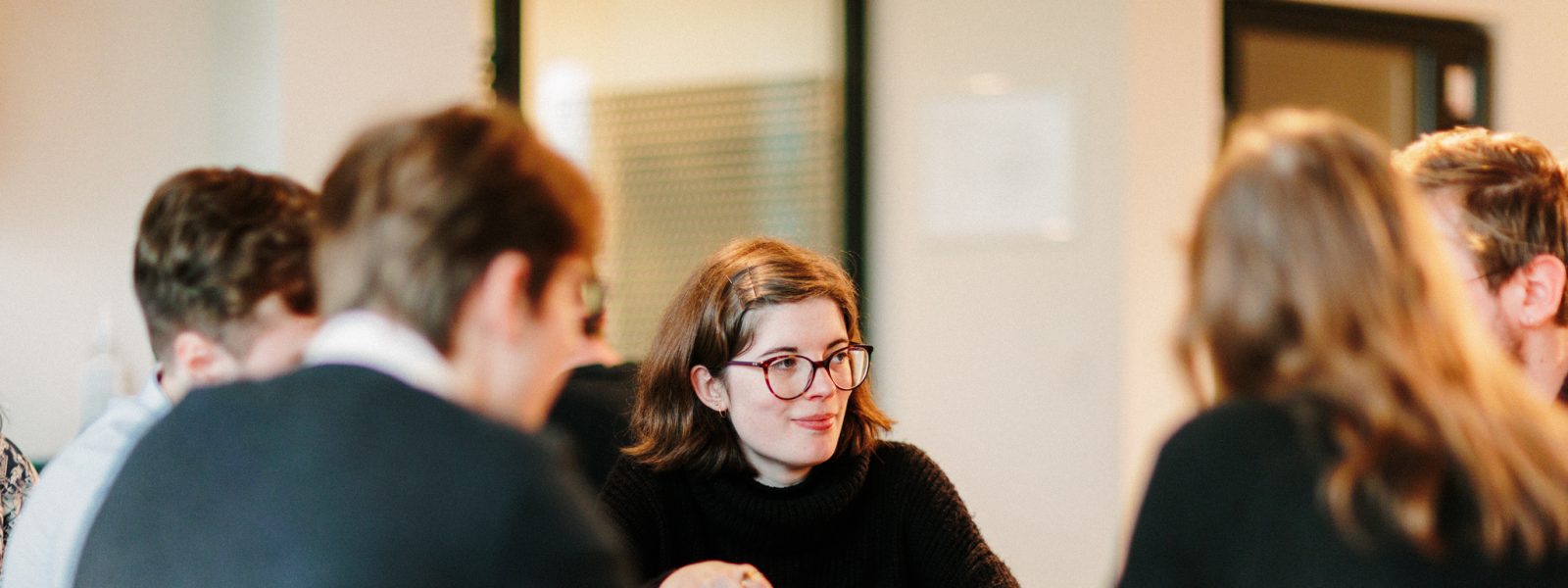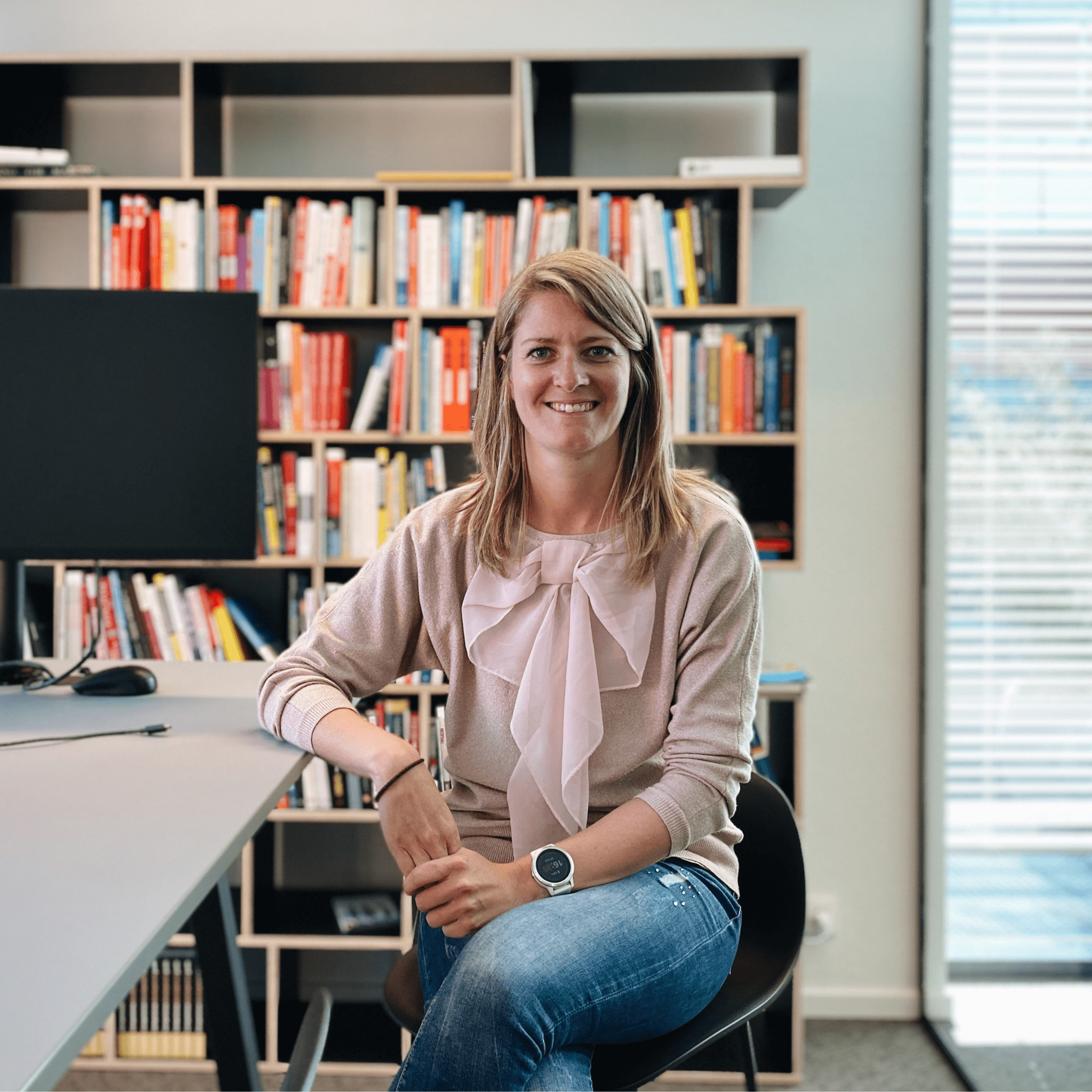Starting your career during a lockdown: Data Engineer Ine about remote interviews & new ways of working
on 6 May 2021 for GraduatesIne Nauwelaerts discovered her passion for data science and data engineering during her master’s degree, and her enthusiasm about everything to do with data is downright infectious. Find out what it’s like starting your first job during a global pandemic, how to best communicate with busy people and the perks of working life.
Ine’s specs
- Started at the end of September 2020
- Works for Dutch insurance company NN – non-life department
- Part of the Data team as Data Engineer
- Studied Civil Engineer – Masters in Mathematic Engineering Techniques
- Loves drawing, painting, designing jewelry and tinkering with AI
How did you find Exellys?
It probably went a little different for me than for other people. Halfway through my senior year, the pandemic started. A lot of my job interviews were online, through conference calls. There were some upsides, like not having to drive halfway across the country for an interview.
On the other hand, you don’t get to see the company itself. Walk in there, meet a few people, get a sense of the atmosphere. And it’s so different from talking to people face-to-face, when you’re talking online.
Thankfully, I had already attended a job fair the year before where I was introduced to Exellys. And that introduction really stuck.
“Exellys knows their clients and can tell you a lot about the company culture and how you’ll fit. That makes such a difference.”
The reason I eventually went for Exellys was the matching process. I know what I like and what I find interesting, but how do you know what companies are looking for?
Most companies publish lists of technical skills, but those don’t really say much. Is this company right for me? Are they looking for someone like me? How do they see your future within the company? That’s where Exellys comes in.

Exellys introduces you to the real company. You find out important things about the company and the culture that you don’t really ask about in a regular interview. Things like what the company is really looking for and how you’d fit.
“I found everything I was looking for in NN, haven’t regretted it for a minute.”
And now? NN seemed like a perfect match for me and so far, that’s really been the case. It’s great getting to know different companies and doing multiple interviews but finding a match like this is really something else.
Talk us through your role at NN.
So, I’m a Data Engineer at NN in the non-life branch. That basically means we handle the data for all insurance policies except life insurance, like car and fire policies and different variants. All of those variants generate data, which is sent to our data warehouse for processing.
As a Data Engineer, it’s my job to help store, clean and save all of that data coming in. We process everything in our data warehouse to make sure it’s easily accessible and searchable. Like, if you’d like to know who signed on for a specific insurance 3 months ago, that would be something you could access.
“My department helps store, clean and save data coming in from our branches to make it easily accessible and searchable.”
After processing, we generate these systems called info marts, where we collect and store specific data sets from that optimised data pool for people to access. The data sets we store in info marts are more specific than the overarching data warehouse, they’re like subsections.
For instance, our current project is finance. That means we’re collecting all financial data from all insurances. Then we make extracts like what invoices haven’t been paid. Which is, of course, important to know, who isn’t paying. Or who hasn’t paid yet and needs to be sent a reminder. Perfect for people like the CFO to base their decisions and reporting on.
As for the technical side: our data warehouse is built in Microsoft Azure. Although it’s a well-known platform, I hadn’t worked with it yet. We use it for the data warehouse architecture, and we use the programming language SQL to process and clean the data. A much-needed process to make everything usable.
What obstacles did you encounter getting started? Maybe something you didn’t expect.
For me, that was mostly how to communicate. As a Civil Engineer, university taught me a lot of technical knowledge, like mathematical models and programming. And then you start your job and after a few weeks, you need to talk to your team and management about what data they need, what’s useful for them.
“It can be a challenge to show non-technical profiles how they’re benefitting from what you’re doing. They don’t really teach you that in school.”
You have to explain senior management, from your point of view as a technical profile, what you’re doing and how it benefits them. Bear in mind that we’re working with SQL in Azure and you’re trying to translate what you’re doing to an audience that mostly works in excel. It’s a completely different way of working. Not easy on the first go-round.
A more concrete example is crafting an email. You wouldn’t believe how many emails our team leader gets in a day, it’s crazy. So you need to craft your email so that they can see in a glance what you need. There is a certain formula to it, though:
- You start with what you need from them, what they need to do.
- Then give possible options, your own suggestions.
- Below that you provide a little context, to give some more information if needed.
It’s a really strange way of writing and structuring, sort of like telling a story backwards. But having someone actually telling me that during university would have been kind of helpful.
What was it like having to work in a team from a distance?
Besides learning business communication, online communication on the whole has gone really smoothly. Since I started during the pandemic, everything I needed to facilitate remote working was already in place. It didn’t really take any getting used to having to do everything remotely. It feels very natural to me.
But I am looking forward to a more hybrid way of working and being in an actual office from time to time.
What’s your biggest takeaway so far?
On a technical level, I learned that you really have to babysit data. Everything could be fine today and all over the place tomorrow, just because of the types of data coming in.
About soft skills, those emails were an important learning. Another important one, is organizing meetings. When you’re leading one, start with a recap. It’s an easy way of making everything nice and clear for the busy people you’re working with. An added bonus is that it puts you in control of the meeting. You get to decide what you’ll be talking about so that you can benefit from it the most.
“It’s the little things that really transform your way of communicating. It’s often something small that you just wouldn’t think of.”
What’s next on your list regarding subjects you want to learn about?
I’m looking forward to take the Time Management Training Exellys provides as a part of their training and coaching program. Planning projects, making time estimates, etc. Not just for me, but to better communicate towards team members and management as well. It’s not always easy to put a deadline on something.
Finally, since you only graduated recently: how does your professional life compare to your life as a student so far?
For me, it’s mostly planning your days and weekends. Like, in my final year, as my thesis deadline approached especially, I worked a lot of evenings (and/or nights) and weekends. I ran algorithms until 11PM where I had to be on standby to make sure everything kept running.

It’s completely different when you’re working. Your day ends at 5, 5.30 and then you’re free. The same goes for weekends. Of course, you’ve got some household tasks to take care off, but your time is yours to spend. Naturally, there aren’t many possibilities because of that virus we can’t seem to get under control, but it’s still your time at the end of the day.
Another important factor is being able to set your own deadlines. When you’re in school, you get a hard deadline. If it’s not enough, you have to work through the night, or you’ll fail. At work, you can determine or at least help determine a lot of the deadlines yourself.
Thanks for your input, Ine!
About Exellys
Exellys is a Tech Talent Incubator. We match ambitious companies with the finest tech talent. Are you ready to drive the innovations of tomorrow? Ready to make an impact and become a future-fit digital leader?
Whether you are a graduate or (young) professional, Exellys will unlock your full potential by guiding you to a challenging work environment that perfectly matches your personality, expectations and ambitions.
On top of that, you are enrolled in one of our very own training and coaching programs (based on your personal and professional ambition and experience). This means that, while working as an Exellys consultant, we are helping you to bridge your ambition to excellence.
Through intensive training and coaching, you’ll gain the essential skills, competencies and knowledge necessary to become the highly effective professional you aim to be.
Become an Exellyst and get in touch with us today!
Tags: career , data , exellyst story



